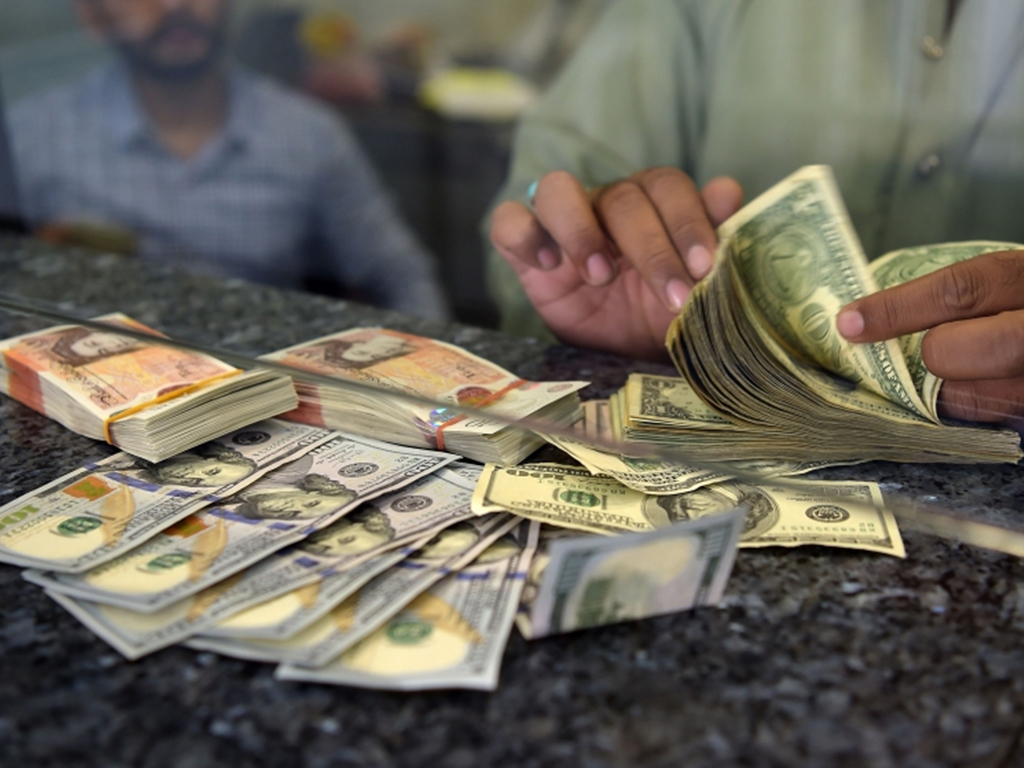The usual breed of economists and analysts dislike Dar; yet love his policies. They want stable (or fixed) exchange rate and low interest rates at the same time. They believe that lowering interest rates creates fiscal space to spend on development. They want growth and control on current account without resolving structural issues. They want to manage impossible things. There is monetary theory of economic and fiscal theory of economics; but they tend to fall for accounting theory of economics.
There are trade-offs in economics. Whether one appreciates it or not, one would do well to learn to live with it. Governments and citizens cannot have the best of all worlds. In a country such as Pakistan, where external debt to export ratio is over 300 percent, there is something terribly wrong. The ratio increased in Dar time from 193 percent to 318 percent. These are fruits of low interest rates and fixed exchange rate, without focusing on structural reforms.
In a country where foreign exchange reserves barely cover three months of imports, how can low interest rates not have an impact on currency. In a country where market based foreign flows are dried down and all the reliance is on multilateral, how can it survive without the IMF nod. There are economic compulsions. There is a limit to run unproductive policies. It is happening for three decades (barring some good years in 2000s). This cannot be unwound in a few months. Patience is a virtue.
The response accounting-economists have for curbing imports in days of low rates and stable exchange rate is to impose duties and taxes. On question of exports, they insist exports are not growing invariably. Remember, Dar used to say the same. Remember, Dar used tariffs for revenue consideration and attempted to curb imports through duties. But the aspect of governance is ignored.
It is ignored that duties and taxes open way for smuggling. It is ignored that in days of low rates (negative real rates) hoarding of commodities and speculation in asset classes is a norm. The dream of having affordable housing would remain a dream if real estate prices grow disproportionately to nominal economic growth.
This class of faux economists and policymakers does not want higher tax on petroleum products, it does not want any new taxes but still yearns for higher PSDP spending. At the same time, its fancies taming the fiscal deficit. The solution is to lower interest rates. It is argued that one percent decline in interest rates saves Rs300-350 billion and comes at the cost of development. Simple.
But it’s not that simple in economics. That is why the IMF has a primary balance concept. When interest rate is kept low to allow for spending on development, it leads to debt accumulation. This puts pressure on imports and boosts domestic demand. Eventually, rates must move up. The perceived saving that was spent on development resulted in higher debt and in days of high rates lead to high debt servicing, further squeezing the fiscal space.
Real markets do not work on drawing room theories. Markets work on pricing signals, sentiments, and fundamentals. They may be controlled for a short time, but only lead to bubbles. That is was happened in Dar’s times.
Last but not the least. The biggest issue of the country is energy. Unfortunately, none of these gurus have any understanding of energy economics. Recent petrol saga is known to all. One cannot turn a blind eye to energy and other structural issues yet propagate for easing polices in tough days.
























Comments
Comments are closed.